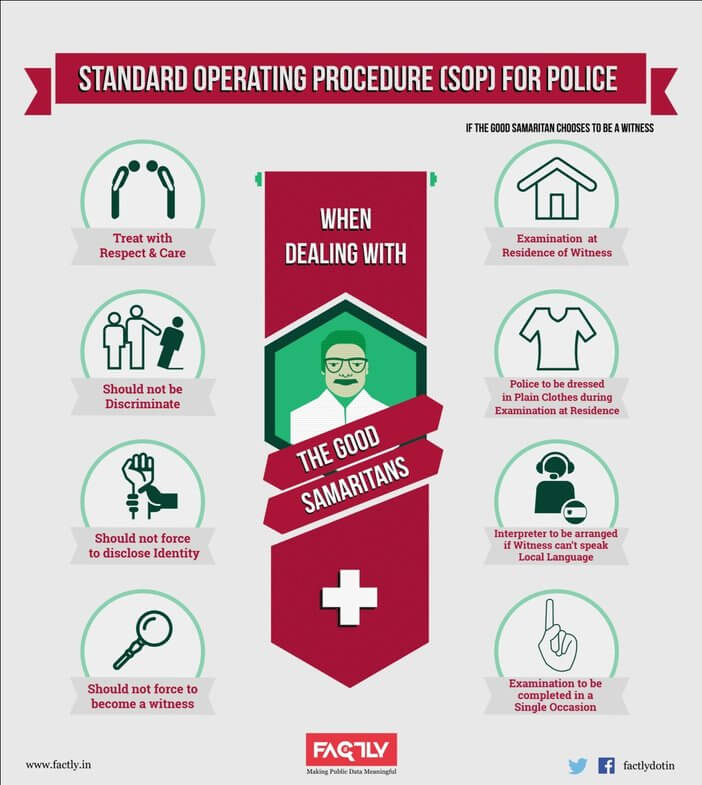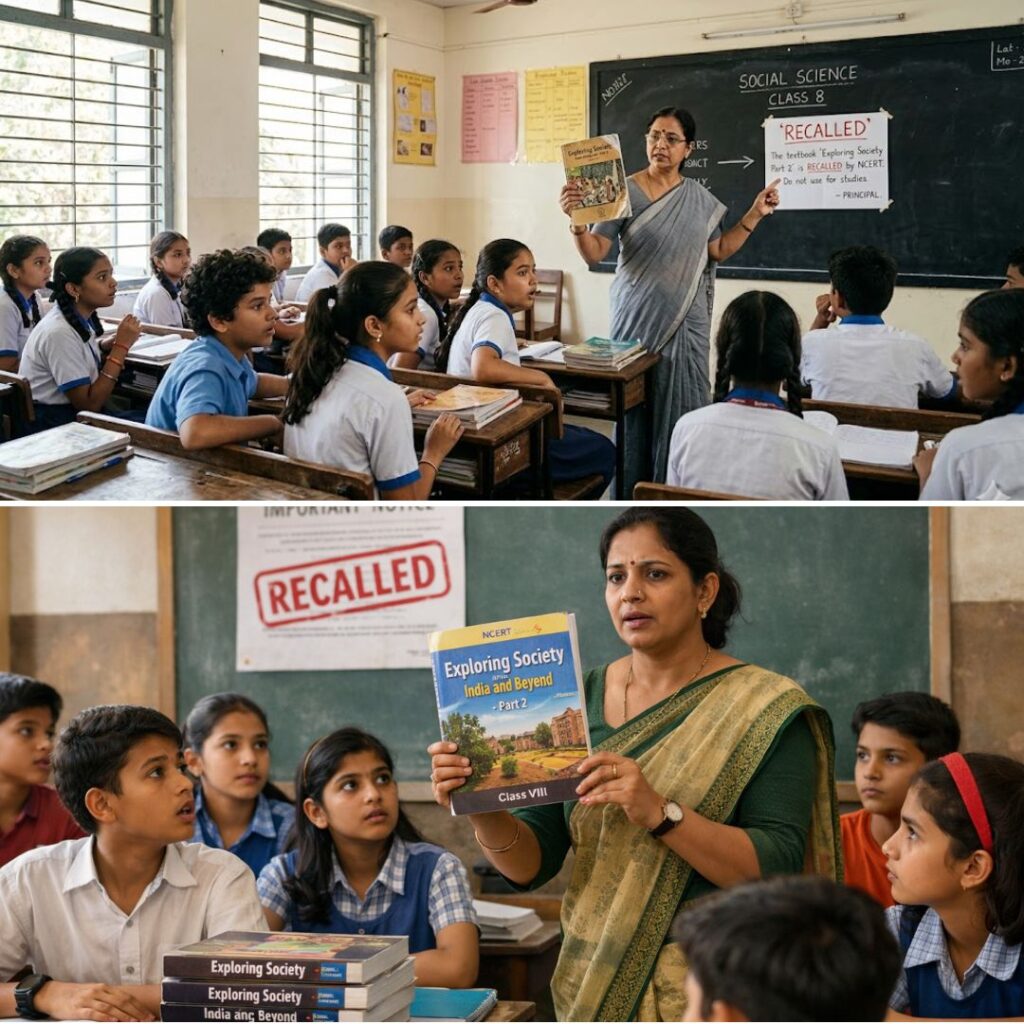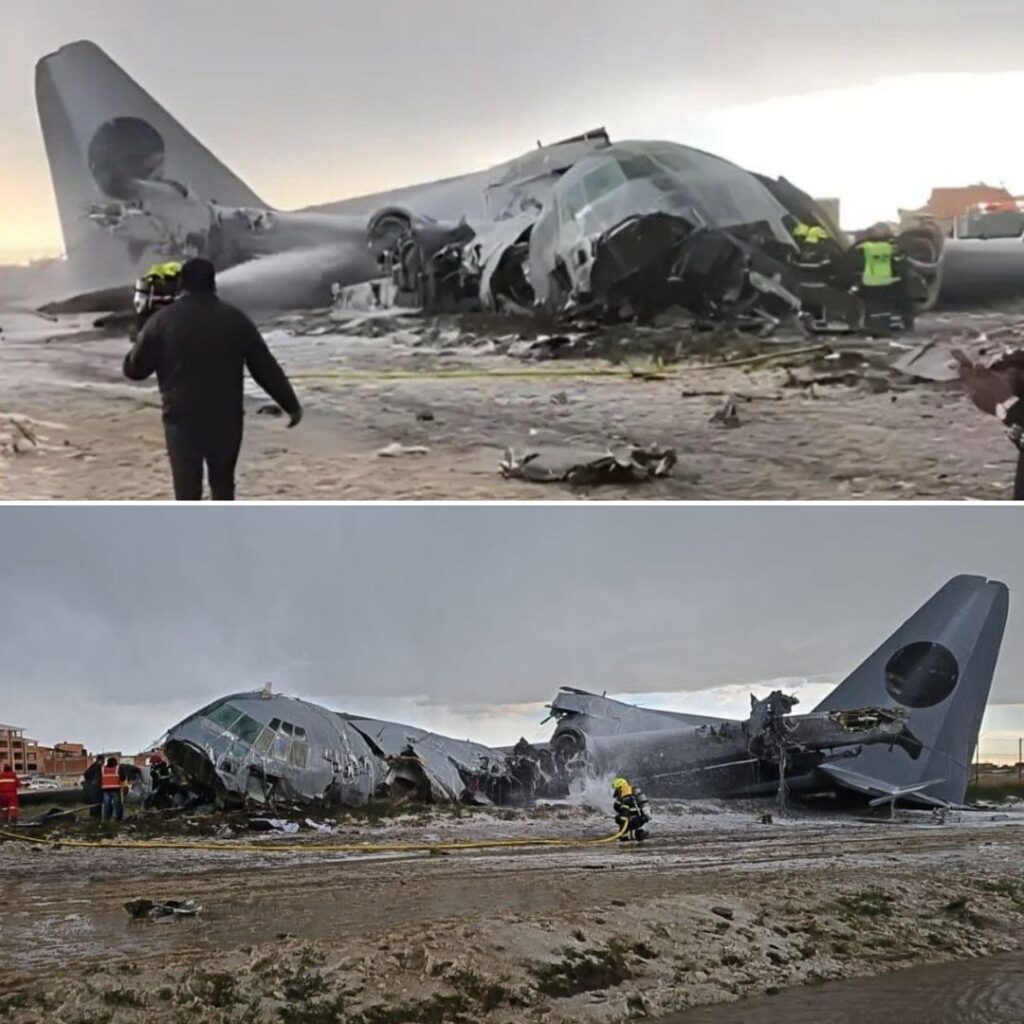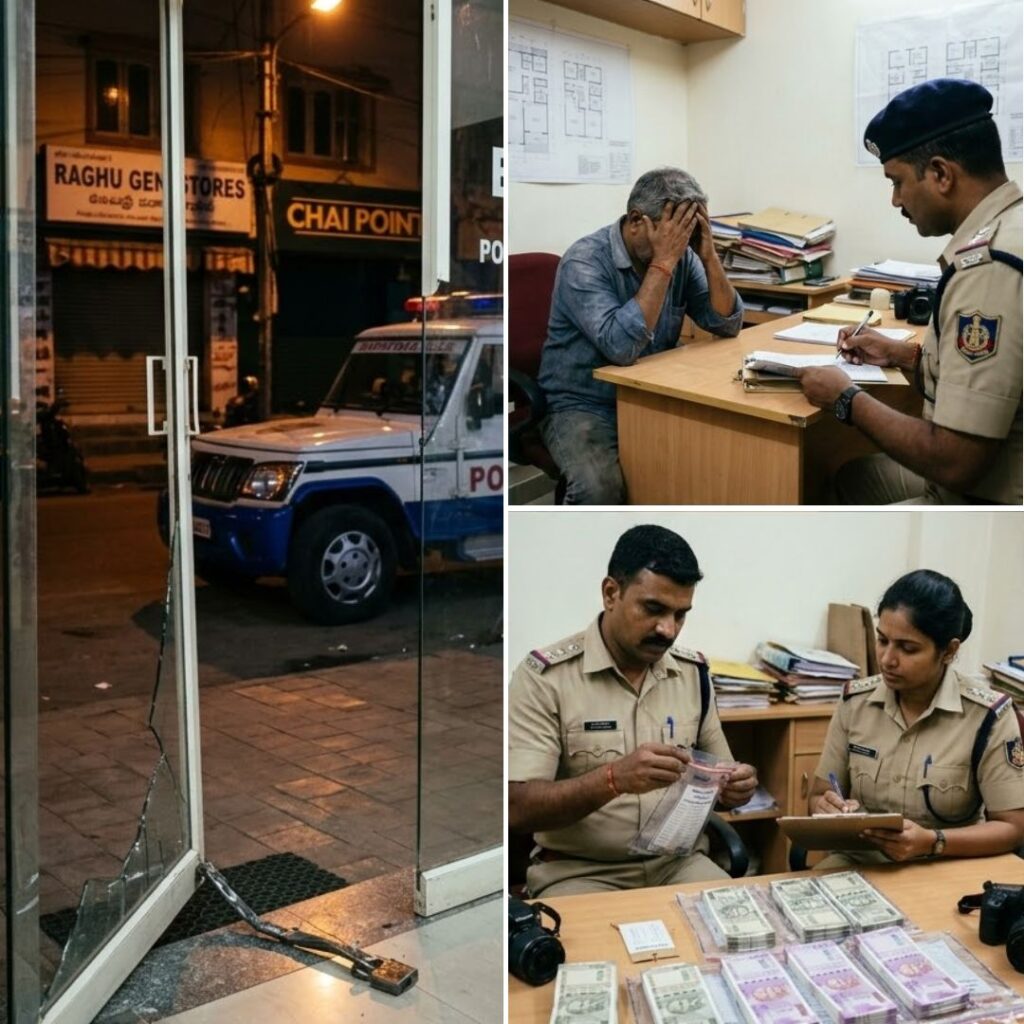Originally Published on factly | Author: Rakesh Dubbudu|Image Courtesy: wikimedia
The Union Government released the Good Samaritan Guidelines last year. It has now released the Standard Operating Procedure (SOP) to be followed while dealing with the Good Samaritans. The Superintendent of Police (SP) should ensure that these guidelines are implemented in their jurisdiction.
The Union Government had in May 2015 notified guidelines for the protection of Good Samaritans. This was a result of the Supreme Court directions in October 2014. Now the Central Government has issued a Standard Operating Procedure (SOP) for the examination of Good Samaritans by the Police or during trial. In essence, the SOP details how the Police should treat the Good Samaritans.
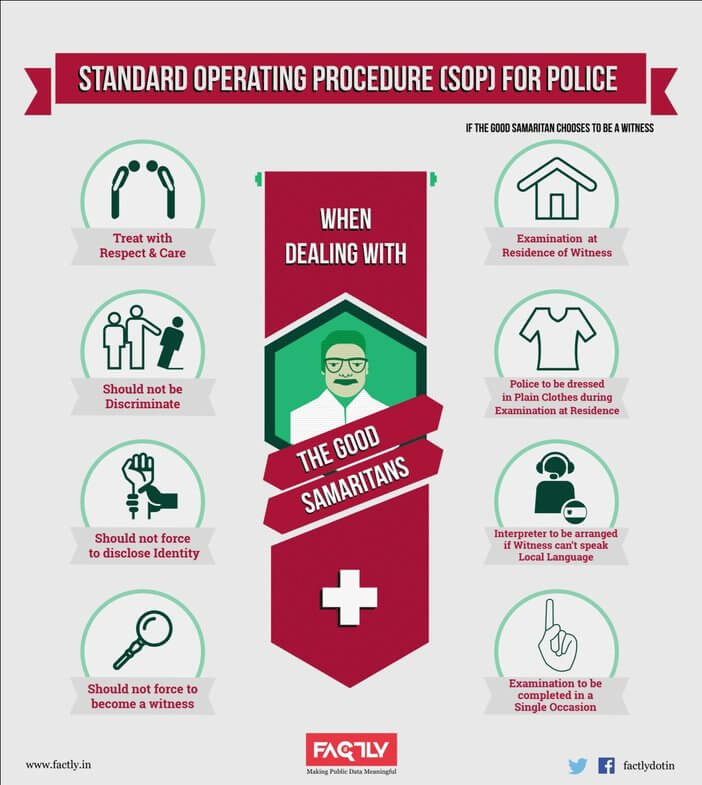
The Good Samaritan to be treated respectfully
The SOP includes the following key points.
■ The Good Samaritan shall be treated respectfully and without any discrimination on the grounds of gender, religion, nationality, caste or any other grounds.
■ Any person who makes a phone call to the Police control room or Police station to give information about any accidental injury or death, except an eyewitness may not reveal personal details such as full name, address, phone number etc.
■ Any Police official, on arrival at the scene, shall not compel the Good Samaritan to disclose his / her name, identity, address and other such details in the Record Form or Log Register.
■ Any Police official or any other person shall not force any Good Samaritan who helps an injured person to become a witness in the matter. The option of becoming a witness in the matter shall solely rest with the Good Samaritan.
■ The concerned Police official shall allow the Good Samaritan to leave after having informed the Police about an injured person on the road, and no further questions shall be asked if the Good Samaritan does not desire to be a witness in the matter.
If the Good Samaritan chooses to be a witness
The SOP also include the following key points to be followed by the Police while examining the Good Samaritan who chooses to be a witness
■ The Good Samaritan shall be examined with utmost care and respect and without any discrimination on the grounds of gender, religion, nationality, caste or any other grounds.
■ The Good Samaritan’s examination by the investigating officer shall, as far as possible, be conducted at a time and place of his convenience such as his place of residence or business, and the investigation officer shall be dressed in plain clothes, unless the Good Samaritan chooses to visit the police station.
■ Where the examination of the Good Samaritan is not possible to be conducted at a time and place of his convenience and the Good Samaritan is required by the Investigation Officer to visit the police station, the reasons for the same shall be recorded by such officer in writing.
■ In case a Good Samaritan chooses to visit the Police Station, he shall be examined in a single examination in a reasonable and time-bound manner, without causing any undue delay.
■ In case the Good Samaritan speaks a language other than the language of the Investigating Officer or the local language of the respective jurisdiction, the Investigating Officer shall arrange for an interpreter.
■ Where a Good Samaritan declares himself to be an eye-witness, he shall be allowed to give his evidence on affidavit, in accordance with section 296 of the Code of Criminal Procedure, 1973.
■ The complete statement or affidavit of such Good Samaritan shall be recorded by the Police official while conducting the investigation in a single examination.
■ In case the attendance of the Good Samaritan cannot be procured without delay, expense or inconvenience which, under the circumstances of the case, would be unreasonable, or his examination is unable to take place at a time and place of his convenience, the Court of Magistrate may appoint a commission for the examination of the Good Samaritan in accordance with section 284 of the Code of Criminal Procedure, 1973 on an application by the concerned.
The government has put the onus on The Superintendent of Police (SP) or Deputy Commissioner of Police (DCP) to ensure that all the above mentioned procedures are implemented throughout their respective jurisdiction.


